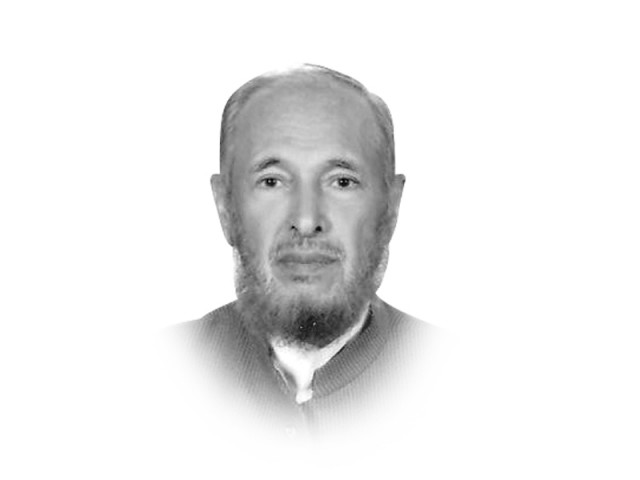The seeds of insurgency
The state’s duty is to leverage the existing potential the tribes for accomplishing the goal of establishing peace.

The writer has served as ambassador to Afghanistan and chief secretary of Khyber-Pakhtunkhwa. He is a nominee of the Government of Pakistan in talks with the TTP
Rather than addressing the root cause of militancy, refuge is sought in launching military operations — as if that is a panacea for the myriad problems that the tribal areas confront. The Swat operation of 2009, for instance, caused the displacement of three million people in a span of 30 days for the cause of chasing out just 400-500 militants. Operations in other areas, such as Bajaur, Mohmand, Khyber, Orakzai, Kurram and Waziristan, had the same effect — displacement of people, suffering of the rank and file of tribesmen, destruction of villages, houses, markets, collapse of the economy, closure of educational institutions, hospitals, and above all, a permanent alienation of the tribes from the Pakistani state. That is what military operations deliver if they are carried out without any coherent, consistent and well-thought-out strategy that is based on the recognition of ground realities and encompasses the broad vision of disengaging the tribal areas from the so-called war on terror.
The insurgency we face is rooted in the needless meddling in the affairs of the tribal areas, unwanted military ingress, destruction of institutions, demolition or weakening of the tribal Maliks, dismantling of the institution of the Political Agent and using the tribal areas as a scapegoat to promote the interests of the coalition forces in Afghanistan. It is seldom realised that peace in the tribal areas would have provided more leverage to the Pakistani government in dealing with the security situation, as well as helping to create an environment that would have helped rapprochement between the US and the Taliban.
First, the state should address the root cause of the insurgency. That would mean the country being disengaged from the so-called war on terror. This can be done once the tribes are taken into confidence, because once fully on-board, they and not the security forces would be the vanguards of the fight against those who wish to establish their regressive control in the tribal areas. Second, the systems that had delivered in difficult circumstances (remember 1965 and 1971 wars) should be resurrected. Foreign militants would then be called upon by the tribes to surrender, leave or give sureties for maintaining peaceful conduct. Fourth, each tribe would reach an agreement with the administration that would ensure that no undesirable element or group stays on its soil; if the tribe is weak, the administration could proceed to deal with such people in accordance with the systems in vogue in the tribal areas. Fifth, the army would be pulled out of the area as soon as peace and security agreements have been signed with all major tribes in all agencies. Sixth, the matter of compensation should be taken up and with the help of the local elders, a comprehensive compensation plan should be drawn up and executed by trustworthy and competent officers. Seventh, international assistance should be sought to execute an ambitious infrastructure development project for the tribal areas. Eighth, a plan should be drawn up for the return of nearly 1.6 million displaced tribesmen to their homes.
The state’s duty is to heal not deepen wounds. Its duty is to leverage the existing potential and the strengths of the tribes for accomplishing the goal of establishing peace. The state must not do anything that promotes instability, hatred, injustice and the alienation of the poor, as this can cause irretrievable damage to state institutions themselves.
Published in The Express Tribune, March 24th, 2014.
Like Opinion & Editorial on Facebook, follow @ETOpEd on Twitter to receive all updates on all our daily pieces.














COMMENTS
Comments are moderated and generally will be posted if they are on-topic and not abusive.
For more information, please see our Comments FAQ